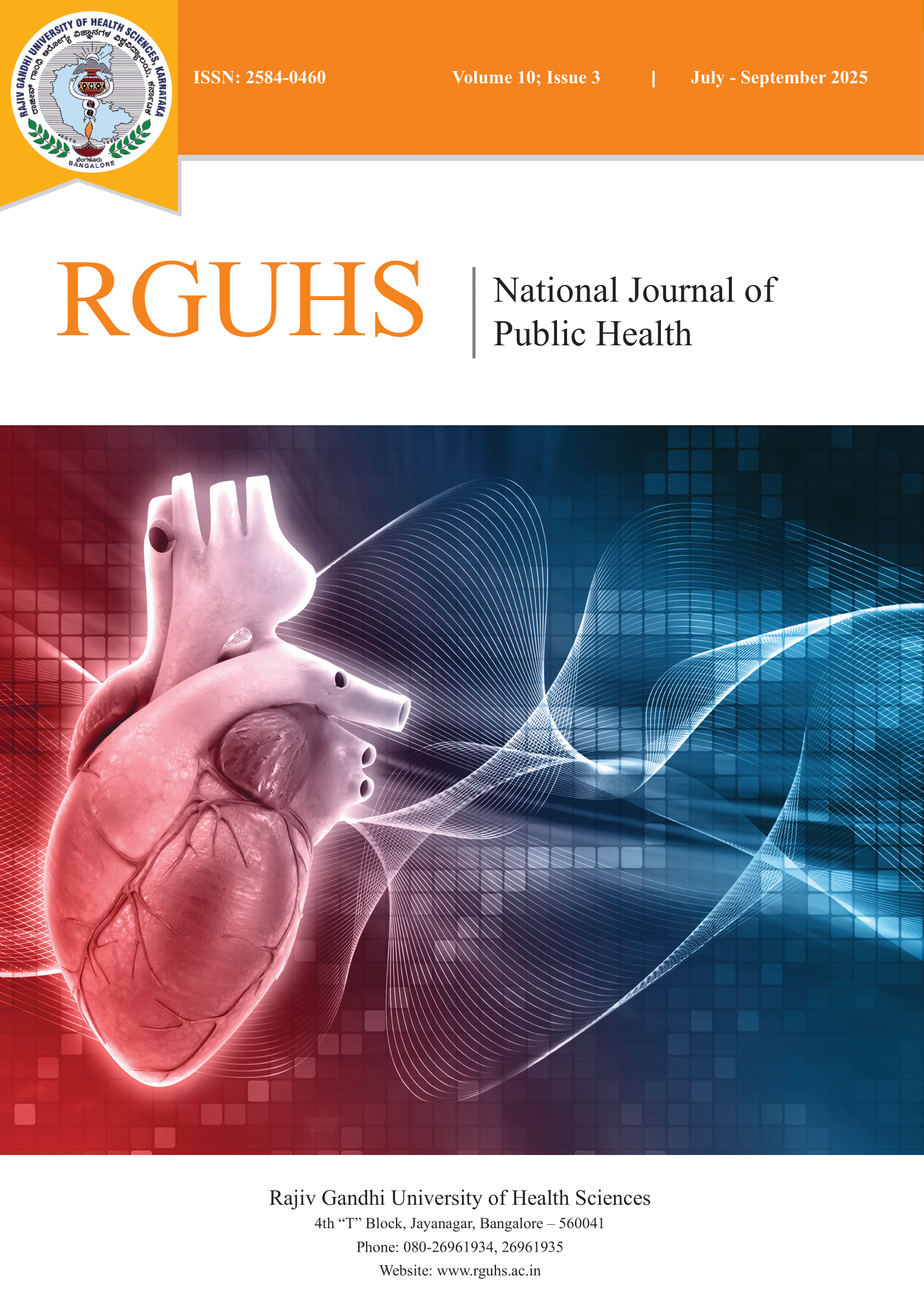
RGUHS Nat. J. Pub. Heal. Sci Vol No: 10 Issue No: 3 eISSN: 2584-0460
Dear Authors,
We invite you to watch this comprehensive video guide on the process of submitting your article online. This video will provide you with step-by-step instructions to ensure a smooth and successful submission.
Thank you for your attention and cooperation.
Dr Selvi Thangaraj
Professor, Department of Community Medicine,
Bengaluru Medical College and Research Institute,
Bengaluru.
E-mail ID: selangel_2006@yahoo.co.in

Abstract
None
Keywords
Downloads
-
1FullTextPDF
Article
Ragging is the term used for the “Initiation Ritual” practiced in higher educational institutions. It is a very touchy subject and a dreaded word. It involves abuse, humiliation or harassment of new entrants or junior students by the senior students. The students feel that it is a tool of social interaction and thus helps their juniors to break the ice with their seniors. The first recorded case of ragging was in eighth century BC, during the Olympics in Greece. It is still practiced all over the world.
Ragging is a rampant practice in colleges, hostels and sometimes even in high schools. Seniors, in the form of ragging, demoralize and defame the juniors. Ragging can be in the form of physical and verbal abuse. It also gives a sense of superiority to the seniors who rag their juniors. It is a disturbing reality and a disorderly conduct. Perpetuating factors for ragging include substance abuse, especially in the hostels, lack of implementation of strict anti-ragging measures in educational institutions.
It can be in the form of teasing or handling the students with rudeness often creating fear and apprehension in the victims. The victims suffer in the form of depression, demoralization, isolation and other detrimental effects on their personality. Sometimes feeling depressed can lead them to even commit suicide. Ragging causes physical, emotional and behavioral effects on students and creates negative feelings in them. It is a public health problem as it involves physical, mental and social exploitation. It not only affects the individuals, but also their family and in turn the whole society.
The Ministry of Human Resource Development under the Department of Higher Education, Government of India has reiterated the ban on ragging of students in Institutions of Higher Learning, despite which, ragging is still continuing to be an unfortunate practice in most of the institutions. After all that has been done to prevent ragging by the government, universities and colleges should implement some measures to fight this menace like rustication from the institution, withholding or withdrawal of scholarships, fellowships and results to name a few. Colleges can employ a counselor, because many times the students fail to reveal their ordeal to their parents, but can open up to qualified personnel who can also guide them in a proper way. The counselors can also motivate the students to be empathetic towards their juniors and newcomers.
Opportunities should be provided to promote healthy interactions between senior and junior students by hosting various activities, which help the students to break the ice. An anti-ragging squad can be formed in the campus constituting representatives from students as well as teachers, to deal with any untoward incidents pertaining to ragging. The college administration, students and teachers should gung-ho to fight this social evil.
“Ragging in any form is punishable. Let us not be mute spectators, but join hands to make our educational institution campuses ragging free.”
Supporting File
References
None